第69章 Meeting a Reverse or Two (4)
Edward Bok now sincerely hoped that his encounters with the absence of a law that has been met were at an end!
Rosa Bonheur, the painter of "The Horse Fair," had been represented to Bok as another recluse who was as inaccessible as Kate Greenaway.He had known of the painter's intimate relations with the ex-Empress Eugenie, and desired to get these reminiscences.Everybody dissuaded him; but again taking a French friend he made the journey to Fontainebleau, where the artist lived in a chateau in the little village of By.
A group of dogs, great, magnificent tawny creatures, welcomed the two visitors to the chateau; and the most powerful door that Bok had ever seen, as securely bolted as that of a cell, told of the inaccessibility of the mistress of the house.Two blue-frocked peasants explained how impossible it was for any one to see their mistress, so Bok asked permission to come in and write her a note.
This was granted; and then, as in the case of Kate Greenaway, Rosa Bonheur herself walked into the hall, in a velvet jacket, dressed, as she always was, in man's attire.A delightful smile lighted the strong face, surmounted by a shock of gray hair, cut short at the back; and from the moment of her first welcome there was no doubt of her cordiality to the few who were fortunate enough to work their way into her presence.It was a wonderful afternoon, spent in the painter's studio in the upper part of the chateau; and Bok carried away with him the promise of Rosa Bonheur to write the story of her life for publication in the magazine.
On his return to London the editor found that Charles Dana Gibson had settled down there for a time.Bok had always wanted Gibson to depict the characters of Dickens; and he felt that this was the opportunity, while the artist was in London and could get the atmosphere for his work.Gibson was as keen for the idea as was Bok, and so the two arranged the series which was subsequently published.
On his way to his steamer to sail for home, Bok visited "Ian Maclaren,"whose Bonnie Brier Bush stories were then in great vogue, and not only contracted for Doctor Watson's stories of the immediate future, but arranged with him for a series of articles which, for two years thereafter, was published in the magazine.
The editor now sailed for home, content with his assembly of foreign "features."On the steamer, Bok heard of the recent discovery of some unpublished letters by Louisa May Alcott, written to five girls, and before returning to Philadelphia, he went to Boston, got into touch with the executors of the will of Miss Alcott, brought the letters back with him to read, and upon reaching Philadelphia, wired his acceptance of them for publication.
But the traveller was not at once to enjoy his home.After only a day in Philadelphia he took a train for Indianapolis.Here lived the most thoroughly American writer of the day, in Bok's estimation: James Whitcomb Riley.An arrangement, perfected before his European visit, had secured to Bok practically exclusive rights to all the output of his Chicago friend Eugene Field, and he felt that Riley's work would admirably complement that of Field.This Bok explained to Riley, who readily fell in with the idea, and the editor returned to Philadelphia with a contract to see Riley's next dozen poems.A little later Field passed away.His last poem, "The Dream Ship," and his posthumous story "The Werewolf" appeared in The Ladies' Home Journal.
A second series of articles was also arranged for with Mr.Harrison, in which he was to depict, in a personal way, the life of a President of the United States, the domestic life of the White House, and the financial arrangements made by the government for the care of the chief executive and his family.The first series of articles by the former President had been very successful; Bok felt that they had accomplished much in making his women readers familiar with their country and the machinery of its government.After this, which had been undeniably solid reading, Bok reasoned that the supplementary articles, in lighter vein, would serve as a sort of dessert.And so it proved.
Bok now devoted his attention to strengthening the fiction in his magazine.He sought Mark Twain, and bought his two new stories; he secured from Bret Harte a tale which he had just finished; and then ran the gamut of the best fiction writers of the day, and secured their best output.Marion Crawford, Conan Doyle, Sarah Orne Jewett, John Kendrick Bangs, Kate Douglas Wiggin, Hamlin Garland, Mrs.Burton Harrison, Elizabeth Stuart Phelps, Mary E.Wilkins, Jerome K.Jerome, Anthony Hope, Joel Chandler Harris, and others followed in rapid succession.
He next turned for a moment to his religious department, decided that it needed a freshening of interest, and secured Dwight L.Moody, whose evangelical work was then so prominently in the public eye, to conduct "Mr.Moody's Bible Class" in the magazine--practically a study of the stated Bible lesson of the month with explanation in Moody's simple and effective style.